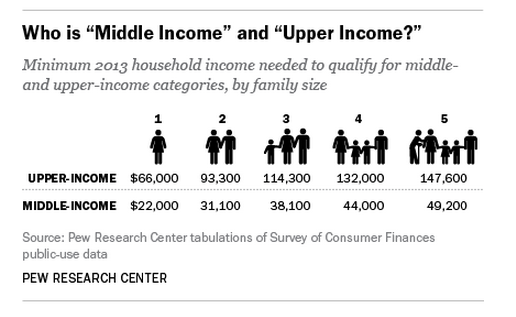bripat9643
Diamond Member
- Apr 1, 2011
- 170,164
- 47,312
Wow.....The answer is:
-Base Federal tax or corporations at 30% of revenue.
-Raise minimum wage to $23.50/hr. Based on where minimum wage should be using 1970-2013 rise in food, shelter, and transportation.
-Eliminate all business subsidies (deductions/write-off’s/write-downs) except for employee expenses which are deducted dollar-for-dollar on all city, state, and Federal taxes and fees with the Feds refunding city, State, and fees.
-Companies with 400 employees or less, employee expenses above the deduction are subsidized at 100% with funds usually give back to the States.
-Adjust Social Security and private/public retirement and pension payments using 1970-2013 price structure.
-Remove the FICA limit.
-Back down ALL costs, prices, fees, to January 1, 2009 levels and hold them for 10 years which will eliminate inflation.
-Recall ALL off-shore investments tax free, and disallow any further off-shore investments.
-Make inversion illegal.
30% of gross revenue? And should businesses decide to un-incorporate then reorganize as LLC's?.....And do we kick all foreign companies out of the US? And the jobs that would be lost?
$23.50 per hour.....Say good bye to over half of America's small businesses.
Tax write offs for business are not 'subsidies'.....What do we do for businesses that do not turn a profit for the latest fiscal year?
"-Back down ALL costs, prices, fees, to January 1, 2009 levels and hold them for 10 years which will eliminate inflation."
Price controls do not work. In fact, they have an opposite effect. Price can be artificially controlled all day long. Costs always rise. The end result is rationing of products. Government should NEVER interfere in the marketplace. Such interference ALWAYS results in fiscal and economic disaster.
American business should be barred from investing outside the borders of the US? First, that is in violation of the US Constitution. Second, it's a violation of the US Code. Third and most importantly, such a proposal would be a vat of hydrochloric acid to any politician. Lastly, such an idea is patently absurd.
You talk about reducing inflation.....Artificially increasing wages is inflationary.
Lowering prices and holding them in place will have the opposite effect. Such a thing would actually cause inflation.......As products become scarce due the cost to produce being higher than the government mandated shelf price, businesses will slow or even cease production. This drives up costs for business and would have an adverse effect on employment. This is another idea which deserves the label of absurd.
Inversion would be non existent if the US had a Corp tax that was competitive with the rest of the industrialized world.
So lets do the math.
My company grossed $105M in 2014. Under my plan the federal tax would be $31.5M. My employee expenses for the year are $30M. My State/local taxes and fees are $11.2M. That would be a $9.2M check from the feds to put in my pocket!!!! AND reduce my taxes/employee expenses to 30% of gross which are currently at 42%. That's the way it would work at any company.
Price controls have NEVER been done in this manner, where employees benefit.
The only way you can have inflation is a rise i cost of goods and services. Under my plan, goods and services are frozen to 2009 levels thus no inflation.
Billions of Americans would have tens of billion$ to spend in the economy. Keeping the shelves stocked would be the only problem.
What if your fictional company grossed $105M but suffered a $10 million loss. It's state and local taxes were $0 and it's wages were $25 million? That would mean that despite losing money for the year you still had to pay out $6.5 million.

